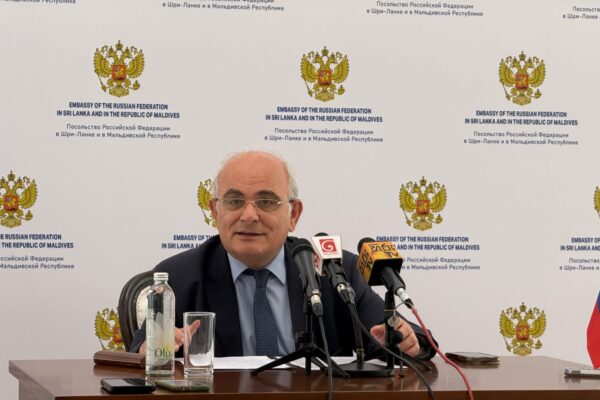COLOMBO : The Government of Sri Lanka and the World Bank signed a loan agreement for US $69.33 million for the Kandy Multimodal Transport Terminal Development Project, which will develop the Good Shed terminal in Kandy.
Located at the city centre and providing access to the railway station, the modernized terminal will integrate rail, bus, three-wheeler, and pedestrian traffic to make it safer and more efficient.
Finance Ministry Secretary S.R.Attygalle and World Bank Country Director for Maldives, Nepal and Sri Lanka Faris H. Hadad-Zervos signed the agreement on behalf of the government and the World Bank, respectively.
On a weekday, nearly 389,000 commuters visit the Kandy city by bus or rail for education, employment and tourism-related purposes. Traffic congestion and transport safety hinders the city’s development potential and Kandy accounts for a high rate of road accidents in Sri Lanka.
Currently, the Good Shed terminal lacks the critical infrastructure such as adequately planned bus bays, parking areas for buses, waiting and queuing areas for passengers, adequate sanitation facilities, and centralised ticket/information counters needed to accommodate the high volume of bus and passenger traffic. The lack of segregation of bus and pedestrian movement around the area poses significant safety risks for pedestrians. Lack of safe walking paths and pedestrian-friendly infrastructure has added to the traffic congestion and has created safety risks.
“This project is part of comprehensive transport planning and improvements currently underway in the Kandy city region,” said Winnie Wang, Senior Transport Specialist and Task Team Leader of the project. “It will lead to less congestion in the city center, safer and faster commutes for public transport and non-motorized transport users, and greater accessibility to markets, employment, schools, and healthcare facilities.”
The project will be implemented by the Urban Development and Housing Ministry. The total project cost is $69.33, with $64.33 million through an International Development Association (IDA) concessional credit with maturity of 30 years and a 5-year grace period.
The remaining $5 million is provided through an IDA non-concessional credit with maturity of 10 years and 5-year grace period.














